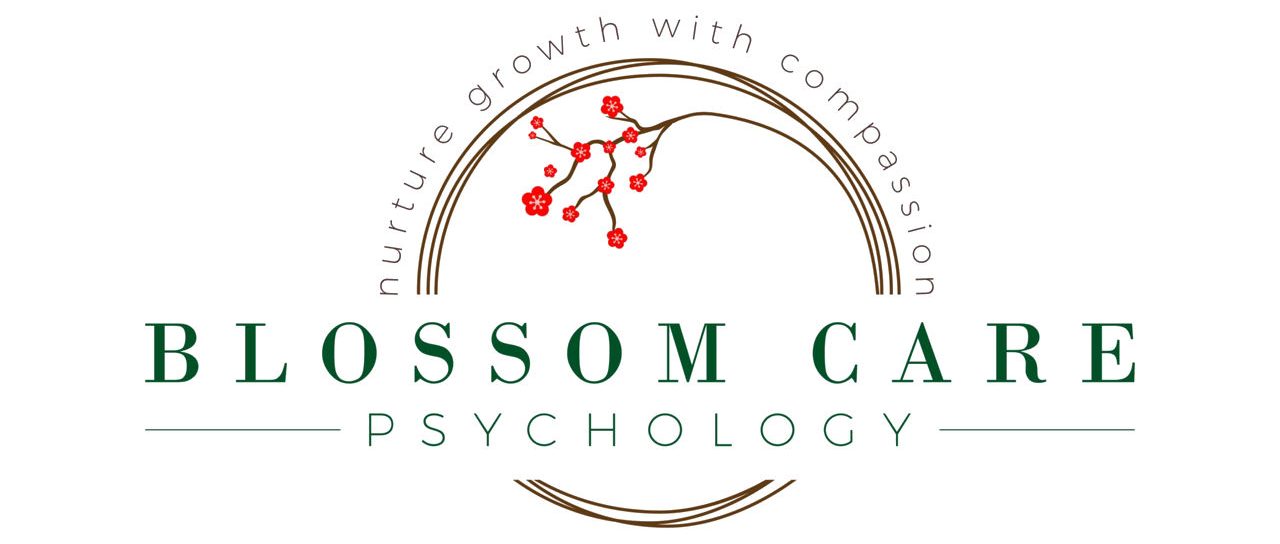5 ways to support children in recovering from a world health crisis
In the short space of a few months, our world in 2020 has changed dramatically since the COVID-19 pandemic emerged as a world health crisis. Some of us may still be in self-isolation, learning from home or working from home. Some of us, especially in Western Australia, have started to re-engage in our “new normal” life after the lockdown.
Collectively, we have had to adjust and adapt to the ever-changing news updates and new rules of social distancing. As parents, our finances and work may have been impacted. We have had to learn new ways of working and learning differently. As families, we may have had to forego or miss important gatherings, such as birthdays, play dates, graduations and excursions. We may have families, relatives and friends, who are unwell because of the illness. We may be feeling worried and overwhelmed with different demands and feelings. As the Center for Disease Control and Prevention (CDC) pointed out, our children are actually more vulnerable to the emotional impact of this pandemic and the disruption it brings to our daily lives. They may worry about their safety and the safety of their loved ones. As we are adjusting and recovering from the lockdown and health crisis, here are five ways you can support your children for better adjustment and to promote their resilience.
- Self-care as parents: It is often overlooked but highly important that we look after ourselves and attend to our needs during this time. This means maintaining certain levels of routine, and making sure you rest and exercise regularly. Take regular breaks from news and social media, so that your mind will not fall into the trap of constant worrying. Have down time to yourself to restore your energy (e.g. mindfulness meditation, reading, hobbies). Check in, communicate and work with your partner to co-parent and take turns to have self-care time. The pandemic has brought on many challenges for parents to make decisions on schooling and the health of their children. Each family is unique. Notice any unhealthy comparisons and judgements. Take them lightly and practise self-compassion. Pause regularly to take deep breaths and check in with yourself. Chronic stress and parenting demands can take its toll on our mental health and result in burnout. If you notice that you find it hard to cope with things and are stressing out, it is okay to seek professional help and informal social support. This is a sign of strength, not weakness, to keep you well. This ensures that you can be a sensitive and responsive caregiver to your children.
- Meeting children’s needs: Children have different needs in order to grow and develop. These include their physical health, social emotional needs, sensory and movement, cognitive stimulation and spiritual needs. Daily routines of learning, play, sleep and mealtimes help to establish a sense of predictability and psychological safety. Quality time with families, such as cooking or movies together, board games or camping in the backyard are helpful ways to support our children.
- Create a safe haven by practicing 3 R’s: Regulate, Relate and Reason: As children try to adjust and adapt, some may feel anxious and stressed. Coming out of lockdown, some may adapt well and be keen to see their friends and teachers. Some may experience heightened levels of anxiety with germs, social situations or separation from caregivers. Some may show their anxiety through anger, challenging or aggressive behaviour. It is important to validate their feelings and offer ways to support them to co-regulate their emotions. When they feel safe, heard and unstuck from their emotional brain, we can then engage them to make a plan and problem-solve with them.
- Social connectedness: Research showed that social connectedness may protect us from developing trauma during pandemics. Help children to develop a sense of purpose and meaning by supporting others in the community (e.g. writing letters or drawing for the elderly or people who live on their own). You may join an online group with similar interests or promote positive values. With the international travel restrictions, migrant families in Australia may be less likely to travel back to their home countries to visit families and relatives. It is important to be creative and find ways to connect with them through technology. We may support children to feel connected with their grandparents and cousins overseas through videoconferencing or letter-writing!
- Emphasise strengths, hope and positivity: Reassure your children that we have good medical frontline workers and medical systems to keep us safe. Share positive stories of how people come together to support each other and solve problems to overcome the challenges that we face during this pandemic. These stories that emphasise hope, strengths and heroes can be therapeutic and healing for both children and adults.
If your children show an ongoing pattern of emotional or behavioural concerns (e.g. anxiety, sadness, nightmares, aggression, regression, addiction to gaming or self-harm) over a period of time, do not hesitate to seek professional help from your GP or mental health professionals.
Bibliography:
五种方法帮助孩子走出全球健康危机的阴霾
在短短的几个月内,自COVID-19疫情成为世界健康危机以来,2020年的这个熟悉的世界发生了巨变。我们之中有些人可能仍处于自我孤立状态,在家学习或在家工作。在封锁之后,有一些特别是在西澳大利亚州的人,已经开始重新过着 “新常态”生活。
集体来说,我们不得不调整和适应每日多变的新闻和新的社交距离规则。作为父母,我们在经济和工作可能已受到影响。我们不得不学习新的工作和学习方式。对家庭而言,我们可能不得不放弃或错过重要的聚会,例如生日、比赛日期、毕业典礼和外出旅行。我们可能有家人、亲戚和朋友因病而不适。我们可能会因不同的需求和感受而感到担忧和不知所措。正如疾病控制和预防中心(CDC)所示,实际上孩子的情感,更容易受到这种疫情及生活巨变所影响。他们可能担心自己以及亲人的安全。当我们从这健康危机调整和复原期间中,可以通过以下五种方式来帮助您的孩子更好地进行调整并提高他们的适应能力。
- 作为父母要意识到自我照顾的重要
在这段时间,我们要照顾好自己的需要,这往往常被忽视,但极其重要。这意味着要保持一定水平的日常规律,并确保您定期休息和运动。尽量少看新闻和社交媒体的信息,以使您的内心不会陷入持续担忧的陷阱。抽出时间恢复精力,(例如:冥想、阅读、爱好)。与您的伴侣沟通合作,分工合作照顾孩子,轮流让一方有自己的时间。 对于子女上学和健康措施的抉择上,疫情给父母带来了许多挑战。 每个家庭都是独一无二的,注意自己有什么任何不健康的比较和自我评断,放松看待这些比较和评断并学习自我慈悲。定期停下来深呼吸,并和‘自己’关注一下。长期养育子女的需求和压力可能会影响我们的心理健康并导致身心疲惫。如果您发现自己忙得晕头转向和精神压力很大,可以寻求专业协助和社区支援。自我照顾是坚强的表现,而非软弱的标志。这样可以确保您成为一个孩子细腻的关爱者。
- 满足儿童的需求
在孩子的成长过程中,有着各种不同的需求。这包括他们的身体健康需求、社会情感需求、五官感觉和活动需求、认知刺激和精神需求。每天有规律性的学习、娱乐、睡眠和进餐时间有助于建立可预测性和心理安全感。与家人共度美好时光,例如一起煮饭或看电影,玩桌游或在后院露营,这些都是帮助我们满足孩子各方面需求的好方法。
- 通过实行3R(调节、相应、理性)以建立情感的避风港
当他们尝试调整和适应时,有些孩子可能会感到焦虑和压力。封锁结束之后,有些孩子可能会适应得很好,并渴望见到他们的朋友和老师。有些孩子可能会因细菌、社交或与照顾者分离等而感到焦虑加剧。有些孩子可能会通过愤怒,挑战性或攻击性行为来表达他们的焦虑。重要的是要了解并肯定他们的感受并提供帮助他们共同调节情绪的方法。当他们感觉到安全,被聆听而慢慢从他们的情感脑中跳脱出来时,我们就可以与他们一同计划并与帮助他们解决问题。
- 社交联系:研究表明,保持社交联系可以保护我们免于产生对疫情的情感创伤。通过帮助社区中的其他有需要的人,我们可以帮助孩子产生使命感和意义(例如为老年人或孤独自己生活的人写信或画图)。您可以加入一个有相同兴趣的在线小组,也可以推广积极的价值观。由于国际边界的关闭,许多移民家庭难以回到自己的原生国家探亲。我们要利用自己的创造力,并通过网络技术与海外的家人朋友保持联系。我们可以通过视频会议应用程序或写信来帮助孩子与海外的祖父母和近亲保持联系!
- 强调力量、希望和积极性:我们可以安抚孩子,保证我们拥有优秀的医疗前线人员和医疗系统,来确保我们的安全。我们也可分享有关人们如何团结起来互相支持和解决问题以克服我们在疫情期间面临的挑战的正面故事。这些带来希望、力量的英雄故事可以对儿童和成人均具有疗愈的作用。
如果您的孩子在一段时间内,持续表现出情绪或行为问题(例如焦虑、悲伤、噩梦、攻击行为、发展倒退、游戏成瘾或自我伤害), 请别顾虑随时向您的家庭医生或精神科专业人员寻求专业协助。
